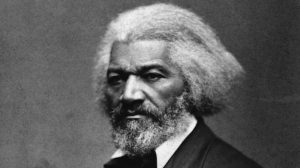


In today’s “On the Square” over at First Things, Leroy Huizenga reflects upon “the technopoly” of our daily lives, where so much of our time is captivated by staring at puter screen, clicking links, reading posts, checking updates, and so on. Huizenga writes,
I worry about ing a functional Gnostic, plugged into this new matrix, this new pixelated irreality. My reality easily es the screens, and the interactivity of hyperlinks means I can go where I will and create my own personal submatrix thereby.
According to Huizenga, this “pixelated irreality” can have serious psychological ramifications:
I’ve been reading Nicholas Carr’s The Shallows: What the Internet Is Doing to Our Brains, and I think we have cause to be uneasy. With copious anecdotes and research into the brain’s plasticity, Carr suggests the Internet is changing us. I feel it; I’m more irritable, less patient, and lacking concentration. When I sit down to actually read a book, I find my mind wandering here or there and wondering if something new has popped up on the ‘net, or if an email is sitting cold and lonely, desperate to be read, while my MacBook Air gently weeps.
For Huizenga, his “means of reentry” into reality is taking the time to fish, to unplug from “irreality” and breathe in the depths of God’s world.
Huizenga’s words resonated with me in a few ways. Often we highlight the honor of honest work (and rightly so), but forget the importance of the blessing of rest. A proper balance is needed to retain peace of mind, as St. Benedict clearly knew. While promoting a strong work ethic, he adds, “Let everything be done in moderation however on account of the faint-hearted.”
As Henri Nouwen wrote,
The great paradox of our time is that many of us are busy and bored at the same time. While running from one event to the next, we wonder in our inmost selves if anything is really happening…. In short, while our lives are full, we feel unfulfilled.
Indeed, it does not take the adverse effects of staring at puter screen all day for daily busyness to wear down the heart. Even too much good work can be a spiritual obstacle. There is a story from the Sayings of the Desert Fathers (about whom I wrote on Tuesday) that perfectly illustrates this:
It was said that there were three friends who were not afraid of hard work. The first chose to reconcile those who were fighting each other, as it is said, “Blessed are the peace-makers’ (Matt. 5). The second chose to visit the sick. The third went to live in prayer and stillness in the desert. Now in spite of all his labors, the first could not make peace in all men’s quarrels; and in his sorrow he went to him who was serving the sick, and he found him also disheartened, for he could not fulfill mandment either. So they went together to see him who was living in the stillness of prayer. They told him their difficulties and begged him to tell them what to do. After a short silence, he poured some water into a bowl and said to them, “Look at the water,” and it was disturbed. After a little while he said to them again, “Look how still the water is now,” and as they looked into the water, they saw their own faces reflected in it as in a mirror. Then he said to them, “It is the same for those who live among men; disturbances prevent them from seeing their faults. But when a man is still, especially in the desert, then he sees his failings.”
The point, of course, is not that being a peacemaker or caring for the sick is a bad endeavor, but rather that true peace of heart can only be gained through times of “stillness in prayer,” through spiritual rest. Too often we are like the disciples, panicking in the midst of a storm while the Son of God calmly sleeps in our boat, utterly peaceful and undisturbed, only to awake and bring “a great calm,” not only to the waters around us, but to our hearts and minds as well (see Matthew 8:23-27).
And without taking time to unplug and reenter reality, when will we ever take the time to remember the God who leads us beside still waters and restores our souls? (cf. Psalm 23)









